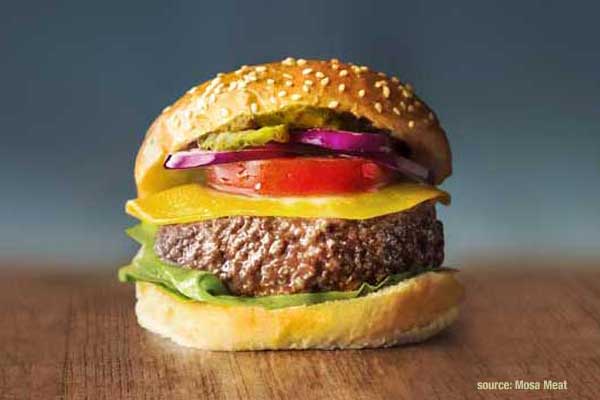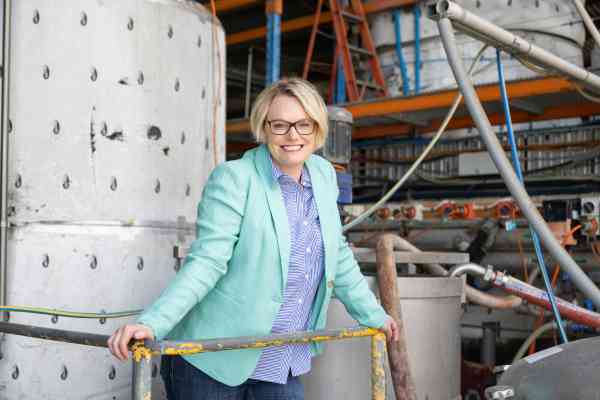Meat 2.0 prepares for mass production
No animals were harmed in the making of this meat say creators of cultivated proteins.

No animals were harmed in the making of this meat say creators of cultivated proteins.
Meat made from living cells is scaling up to industrial levels amid expectations it will slash greenhouse gases without sacrificing the taste and texture associated with traditional meat products.
Novel foods such as these are ripe for commercialisation as societal concerns grow about the impact of livestock on global warming and animal welfare issues.
The US Food and Drug Administration (FDA) very recently approved the sale of lab-grown meat, however it is Singapore that has led the charge, becoming the first country to give it the green light in 2020.
While other regions remain in the regulatory review stages, market watchers anticipate cultured meat will become a $140 billion industry by 2030.
In readiness for this, numerous cultured meat businesses are scaling up their operations.
US-based Eat Just – the first business to gain approval to sell cultured chicken products in Singapore – is planning to open a 2788 m2 (30,000 sq ft) facility to produce lab-grown meat in Singapore early next year.
Mosa Meat is also in the process of scaling its cultivated beef production.
Founders of the Netherlands-based company introduced the world’s first cultivated beef hamburger in 2013, after years of research and €250,000 of investment.
Now the business has announced expansion plans from its current pilot site to a new 7,340 m2 (77,000 sq ft) facility that will contain what it describes as “industrial-size production lines” to provide a bigger beef supply. It has also recently forged a new partnership with Singapore-based Esco Aster in a bid to supply cultivated beef in Singapore.
With an investor list that includes actor and climate activist Leonardo DiCaprio, Mosa Meat creates its beef using “a sesame-seed sized sample of cells” which grows into beef under the right conditions (pictured above).
The company claims it can make 80,000 hamburgers from a single cell sample (all without harming a single cow) and it is currently seeking regulatory clearance for cultivated beef so it can bring its products to market.
Another company making inroads into the cultured meat market is Magic Valley, which produces cultured lamb from cells provided by Lucy the Lamb who is purportedly still alive and well, and enjoying life with her flock in rural Australia.
"Magic Valley’s cultured meat products will now provide Australians with a slaughter-free alternative to factory-farmed lamb."

According to Magic Valley, growth in the global population will see demand for meat surpass what can be produced by the traditional farming system.
Founded by vegan Paul Bevan, Magic Valley has a team with experience in both stem cell biology and livestock production.
Compared with traditionally farmed meat, Magic Valley says cultured meat can reap a 96% reduction in greenhouse gas emissions, 99% reduction in land use and a 96% reduction in water use.
The company is focusing on developing the world’s first cultured lamb products including mince, strips, steaks and chops.
“Given Australia’s excellent reputation for food safety, security and producing quality sheep, lamb was the obvious choice for the company’s first product range. Not to mention the fact that lambs are also currently slaughtered at an incredibly young age using traditional farming methods,” says Bevan.
“Magic Valley’s cultured meat products will now provide Australians with a slaughter-free alternative to factory-farmed lamb.”
The company is planning to expand throughout China, greater Asia, the US and the Middle East and is currently in discussions with the food regulators about gaining approval for sale within Australia/NZ.
Another animal product getting a revamp is the milk and dairy industry.
Australia’s Eden Brew has developed a natural process in fermentation called ‘precision fermentation’ based on yeast rather than animal DNA.
The company says this fermentation process is capable of producing six proteins identical to cow’s milk using techniques developed by the CSIRO, which is now one of its key partners.
Eden Brew says its range will use less than 10 litres of water to produce 1 litre of milk, compared with the 1,000 litres of water currently required to produce 1 litre of traditional cows’ milk.
“Our process of fermentation takes the gene map and uses a natural yeast to grow them into nature-identical cow’s milk proteins,” the company says.
Its first products are expected for release next year once food accreditation has been achieved.
*Article updated 23 Novermber 2022 to include FDA approval of lab-grown meat.
The tech
Cultured meat is not a plant-based meat substitute. It is real meat grown from cells rather than from live animals that have been slaughtered. Cultured meat can be produced from a small sample of animal cells which are placed in an oxygen and nutrient-rich medium where they are able to multiply and expand.
Once muscle tissue reaches maturity it can be combined with fat tissue to mimic traditional meat. Substantial research has gone into creating a process that uses no live animal products (such as bovine foetal serum) as this is emerging as an important differentiator for businesses seeking cruelty-free credentials for their cultured meat products.





